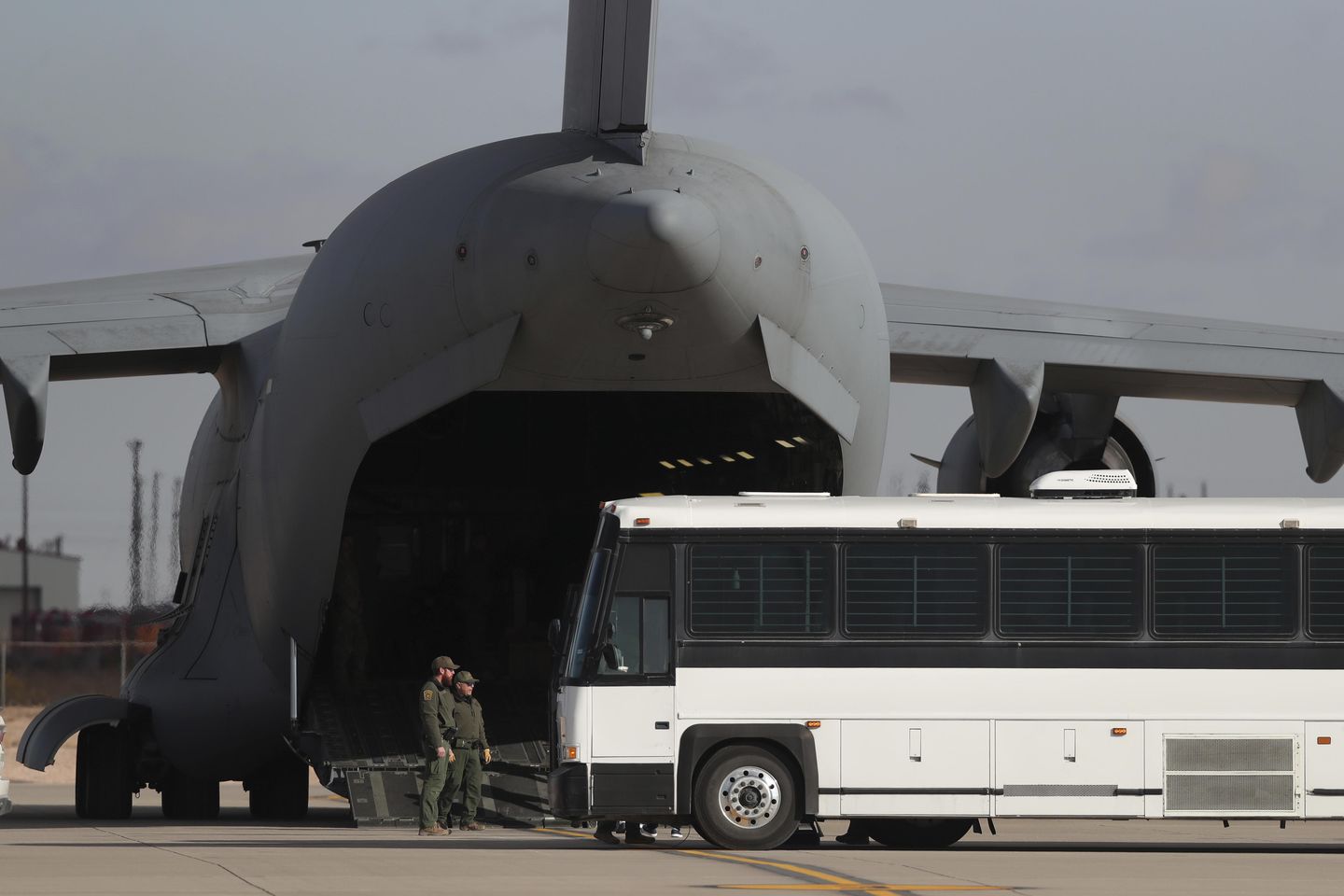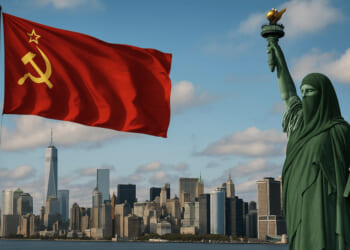
The Supreme Court delivered another major win to President Trump on Monday as it freed him from lower court rulings that had imposed a host of hurdles before he could deport illegal immigrants to “third countries.”
The justices, in an unsigned order, put the lower court rulings on hold while the case develops.
That gives Mr. Trump more freedom to deport some of the trickiest illegal immigrants whose home countries won’t take them back.
The court’s three Democratic appointees dissented from the ruling, saying it could condemn some illegal immigrants to torture or death.
Justice Sonia Sotomayor called the court’s rush to intervene a “gross” abuse of the justices’ power.
“In matters of life and death, it is best to proceed with caution,” she wrote.
The case stems from one of the trickiest areas of immigration, where someone has been ordered deported but their home nation refuses to take them back. Under U.S. law, they can be deported to a “third country” if the government can find a willing partner.
The question before the court was what sort of notice and appeals rights those migrants have before the government can carry out that third-country removal.
Judge Brian Murphy, an Obama appointee to the court in Massachusetts, ruled they deserved “due process,” which he said meant a written notice including the country they were to be sent to, a chance to argue to Homeland Security that they face danger if sent to that country, and if that fails, another 15 days to appeal the ruling in the immigration courts.
Monday’s ruling puts those new hurdles on ice.
The issue came to a head last month when the Trump administration tried to deport a half-dozen major felons from other nations to South Sudan.
Judge Murphy stepped in and halted the plan mid-journey, saying the flight violated his orders. He demanded the migrants be afforded more due process.
“Based on what I have learned, I don’t see how anybody could say these individuals had a meaningful opportunity to object,” Judge Murphy said.
Homeland Security diverted the plane to a U.S. military base in Djibouti, but vociferously complained that the judge was threatening national security, anti-terrorism efforts and humanitarian missions in Africa.
Trump lawyers accused Judge Murphy of rewriting immigration law and requiring new protections beyond what Congress had carved out.
The migrants in question have gone through the regular immigration system and have been ordered deported. Those removals were being thwarted by their home countries’ refusal to take them back.
Justice Department lawyers said finding alternate locations for major criminal migrants has been tricky, which is why South Sudan was picked as a target — and why the negotiations had to be secretive. Secretary of State Marco Rubio said the judge’s dragging things into the open has upended touchy relations with African nations, endangered U.S. military operations and hindered humanitarian aid.
The migrants in Djibouti are Jose Manuel Rodriguez-Quinones, a Cuban convicted of attempted murder; Enrique Arias-Hierro, a Cuban convicted of homicide and kidnapping; Thongxay Nilakout, a Laotian convicted of murder; Jesus Munoz-Gutierrez, a Mexican convicted of murder; Dian Peter Domach, a South Sudan citizen convicted of robbery; Kyaw Mya, a Burmese citizen convicted of a sex crime against a child less than 12 years of age; Nyo Myint, another Burmese citizen convicted of sexual assault against a mentally infirm person; and Tuan Thanh Phan, a Vietnamese citizen convicted of murder.
Their lawyer had pointed out that the U.S. government had its highest level of warning for Americans not to travel to South Sudan. They said it was cruel to send the illegal immigrants to that environment.
The migrants are currently being held in a shipping container as a make-shift detention facility at the base in Djibouti, as Homeland Security tries to give them a chance to argue against being released in South Sudan.
Judge Murphy said Monday that the Supreme Court’s ruling doesn’t affect their specific situation, and Homeland Security must continue that process.
The case has exposed mistakes on the Trump administration’s part. It had to un-deport one Guatemalan man, known in court documents by initials O.C.G., after he was deported to Mexico without being asked if he feared being tortured.=
Homeland Security first told the judge he had been asked, but later said that was wrong, blaming a record-keeping bungle.
The Supreme Court, in previous rulings, had been largely permissive in letting Mr. Trump roll back Biden-era programs that were lenient to unauthorized migrants, but had been more skeptical of his efforts to take short-cuts on deportations themselves.
Monday’s ruling cuts against that.
It’s also the latest rebuke to lower courts, and particularly Obama and Biden appointees, who had erected defenses around illegal immigrants.
Justice Sotomayor criticized her colleagues for caring more about a single judge’s potential overreach than the “thousands” she said “will suffer violence in farflung locales.”å
















